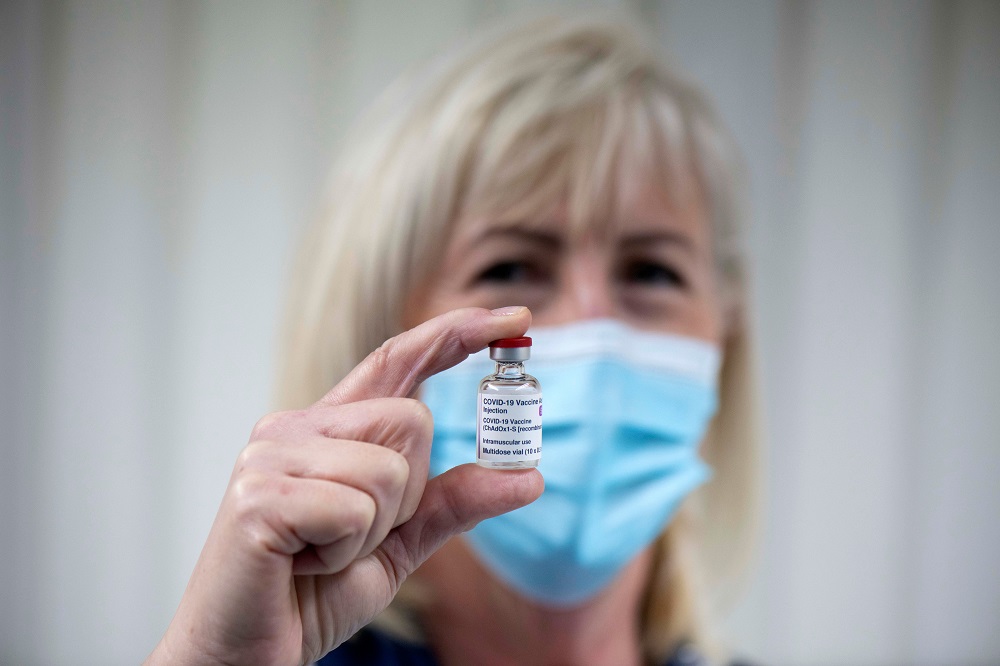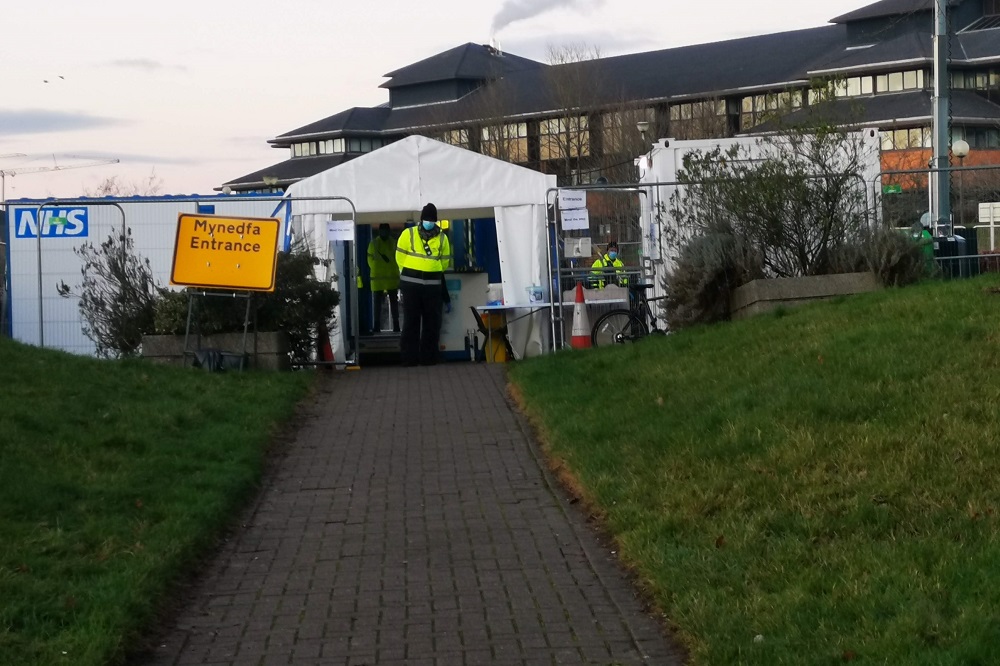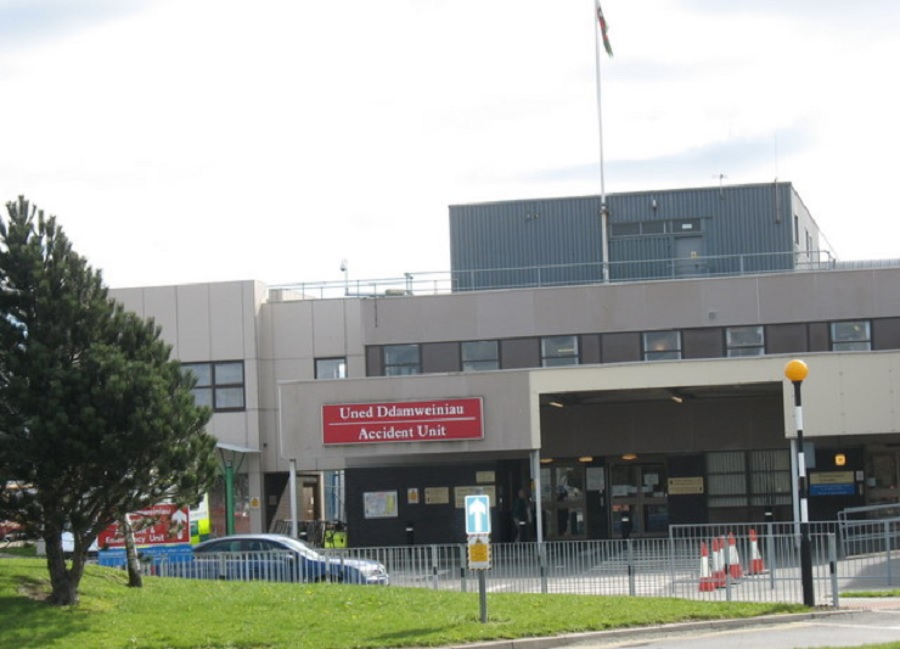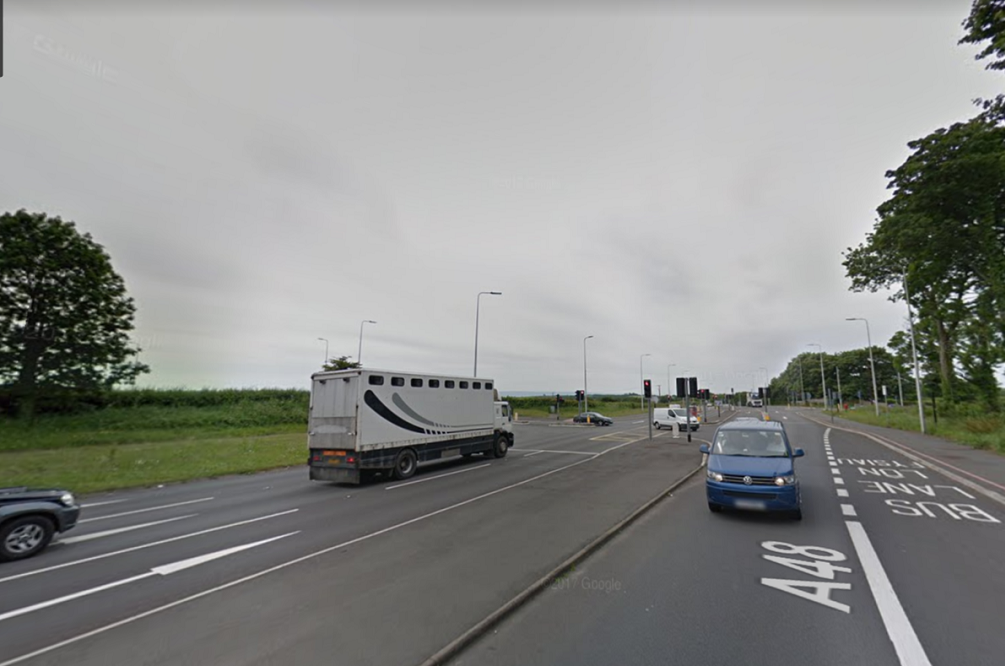News in brief: Health chief plays down fears over effectiveness of Oxford/Astra Zeneca vaccine

Dr Giri Shankar, Incident Director for the Coronavirus outbreak response at Public Health Wales, is urging people to get vaccinated despite recent reports that have questioned the effectiveness of the Oxford/Astra Zeneca vaccine, the most widely used in Wales at present.
A small-scale trial of the vaccine was widely reported in the media yesterday after it concluded the Oxford/AstraZeneca jab could offer as little as 10% protection against the Covid variant first seen in South Africa and now present in small numbers in Wales.
Prof Shabir Madhi from the University of the Witwatersrand in South Africa, who led the trial, said the study was designed to focus on determining whether or not the vaccine had at least 60% efficacy against Covid to any degree of severity.
“The results that we now describe against the variant, the point estimate is 10%. Clearly, that is far off the 60% mark and, even if you had a larger study you are unlikely to get to a vaccine efficacy readout of even 40 or 50%,” he told BBC Radio 4’s Today programme.
‘Preliminary’
“Media reports regarding the effectiveness of the Oxford/Astra Zeneca vaccine against the South African variant of concern relate to preliminary data from a study involving a small group of people which is not yet peer-reviewed,” Dr Shankar said.
“In trials this vaccine has demonstrated high levels of protection against COVID-related hospitalisation and death from 28 days after vaccination, and protection was reported to be consistent across trial sites, including in South Africa where almost all infections are due to this variant.”
“We encourage everyone, whatever their background, socio-demographic and ethnicity, to have the Coronavirus vaccine when they are offered it. We also stress the importance of seeking information from a trusted source such as Public Health Wales, the Welsh Government, local health board or GP.”

Case rates coninue to fall across Wales
A further 10 people have died with Covid and 351 people have tested positive for the virus, according to the latest figures from Public Health Wales.
Infection rates across Wales are continuing to decline with the nationwide case rate currently 114.3 per 100,000 people, down from 116.4 yesterday and the proportion of positive tests has dropped from 9.8% per 100,000 tests to 9.5%.
Both figures are the lowest recorded since the first week in October last year.
Three of the newly record deaths were in the Betsi Cadwaladr health board area and there were two in each of Aneurin Bevan, Cwm Taf Morgannwg and Hywel Dda. Swansea Bay reported one.
Since yesterday’s update close to 25,000 people have received at least one dose of the vaccine, taking the total since 8 December to 628,760.
Cardiff (37) had the highest number of new cases since yesterday’s report, followed by Wrexham (34) and Flintshire (27).
Wrexham has the highest weekly case rate in Wales at 235.4 per 100,000 and also has the highest positive test percentage at 15.2% per 100,000 tests.
The overall case rate in Wales over the last seven days is 116.4 and the positive test rate is 9.8%. the lowest since the second week of October last year.
Meanwhile, latest figures from the Office for National Statistics. calculate a total of 6,843 people in Wales have died due to Covid-19 since the start of the pandemic.
There were 361 deaths involving Covid in the week ending 29 January, a decrease from 447 the previous week, accounting for 37.1% of all deaths.
This was the fifth-highest proportion of deaths involving coronavirus recorded in Wales during the pandemic but is a 19.2% decrease compared with the previous seven day.
This also represents the second recorded fall in the weekly number of Covid deaths since the week ending 4 December 2020.
Between 1 March 2020 and 29 January 2021, there have been a total of 1,709 deaths of residents in care homes involving Covid-19 in Wales.
The ONS statistics includes deaths that occurred up to 29 January but were registered up to 6 February 2021.
Yesterday the daily figures released by Public Health Wales indicated the death toll had reached 5,001 since the start of the pandemic in March but its calculations only include the deaths of a hospital patients or care home resident where Covid-19 has been confirmed with a positive laboratory test and the clinician suspects this was a causative factor in the death.
Deaths counted by the ONS are when Covid-19 is mentioned by doctors on the death certificate and which occur in all settings – including hospitals, care homes, hospices and people’s homes.

MS presses for more spending to cut waiting times across north Wales
Janet Finch-Saunders, the Senedd member for Aberconwy, has welcomed the opening of the new Post Anaesthesia Care Unit at Ysbyty Gwynedd, and is urging the Welsh Government to support similar initiatives across north Wales to help address lengthy waiting times for treatment.
The PACU is an overnight service run by members of the hospital’s theatre team, designed for patients who require enhanced care following surgery.
“This Unit is a sensible and efficient solution to help address the compounded pressures of the usual busy winter months and Covid-19, Mrs Finch-Saunders said.
“The new PACU will ensure that fewer patients will need to have their operation rescheduled, enabling them to recover after their surgery in this ward until an appropriate bed becomes available. I congratulate the theatre team who have worked tirelessly to get this initiative up and running.
“I now call on the Welsh Government to give all necessary support to BCUHB to ensure that similar such innovations can be rolled out across the Board’s facilities. Coronavirus has exacerbated an entrenched waiting time issue – something that requires an urgent and effective response.
“Due to understandable pressures on our healthcare workers, some treatments have been placed on a holding pattern, with the Welsh Health Minister admitting that the backlog could take a full Parliamentary term to address. This is a crisis that is hitting locally, with just 48.7% of patients waiting fewer than 26 weeks in November 2020 to receive treatment.
“With constituents contacting me about the knock-on impact of these delays, I should like to see the Welsh Government support the creation of specialised non-Covid wards to assist with the local resumption of essential services, such as cancer treatments,” she added.
“The cancer treatment figures remain a longstanding concern for many local residents. Across Wales, just 4,913 patients started treatment in April 2020. Currently, 63.5% out of 11,717 patients are being seen within 62 days on the Single Cancer Pathway. Specialised non-Covid wards would assist here.”

Decision due in April on controversial Vale road plans
Alex Seabrook, local democracy reporter
A decision is due in April on whether to press ahead with plans to build a controversial new road in the Vale of Glamorgan.
The proposed road would link Junction 34 on the M4 with Sycamore Cross on the A48, and would cost more than £66 million.
The plans have drawn heavy criticism from villagers in Pendoylan whose houses would be knocked down, cyclists using key routes across the Vale which could be blocked off, and Coed Cymru which has warned ancient woodland would be felled to make way for the road.
After a public consultation on the road lasting several months, the Vale of Glamorgan council has now revealed a decision on progressing the project is due in April. Campaigners have renewed their calls on the council to drop the plans for the road altogether.
A Vale of Glamorgan council spokesperson said: “Bids have been made to Welsh Government for funding for this scheme under the Local Transport Fund but not for WelTAG Stage 3. Information on these bids should soon be available on the council website.
“Responses received as part of the consultation exercise, which closed on December 23, have been mixed and a full report on the views expressed is currently being compiled.
“A technical review group will meet in March to consider the consultation, followed by a report to cabinet the following month. This report will determine if the project is to progress.”
WelTAG Stage 3 means the Vale council writing up a full business case for the new road, and forms part of the process for applying for funding from the Welsh Government. If the council goes ahead with the road, this stage would likely involve choosing a preferred route.
Campaigners are claiming the public consultation received thousands of objections, and are calling on the Vale to drop the plans to build the new road.
A spokesperson for Vale Communities for Future Generations said: “The thousands of objections to this road scheme received from a wide range of interest groups will hopefully help Vale councillors understand that their road scheme is viewed as outdated and that the world has moved on since 2017 when it was first proposed.
“Certainly, the credibility of the Vale Labour-led council will be questioned if this scheme is not formally and permanently cancelled — due not least to both the Vale council’s and the Welsh Government’s commitment in 2019 to reducing the causes of climate change.
“The council has already spent £1.45 million on a severely flawed consultation process for this road proposal.
“We now need to see their determination to permanently halt any further spending on such a destructive road scheme that would damage the environment; pollute clean air; reduce leisure access for cyclists, walkers and visitors; and cost a huge amount of public money.
“It would not be acceptable to simply postpone further developments or stages of this scheme. We need to see closure and the road scheme cancelled.
“Hopefully Vale council officers and their consultants, having analysed and published the thousands of objections, will soon recommend to councillors and to the Vale cabinet that the M4–A48 road link scheme be scrapped.”
Support our Nation today
For the price of a cup of coffee a month you can help us create an independent, not-for-profit, national news service for the people of Wales, by the people of Wales.





